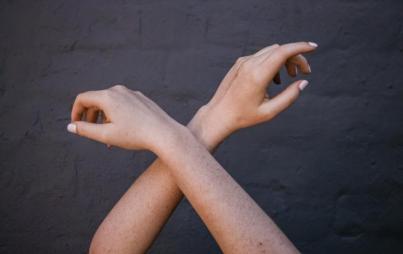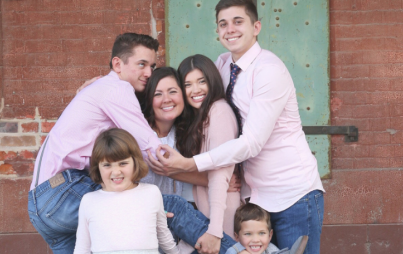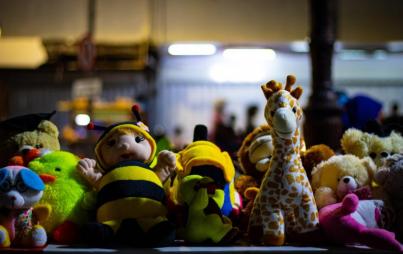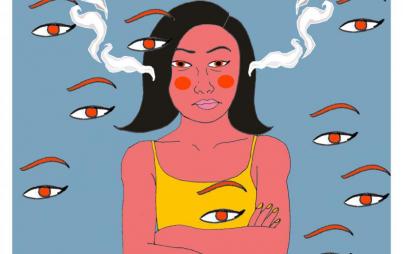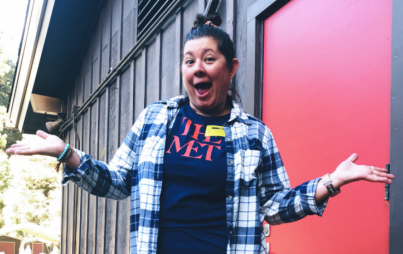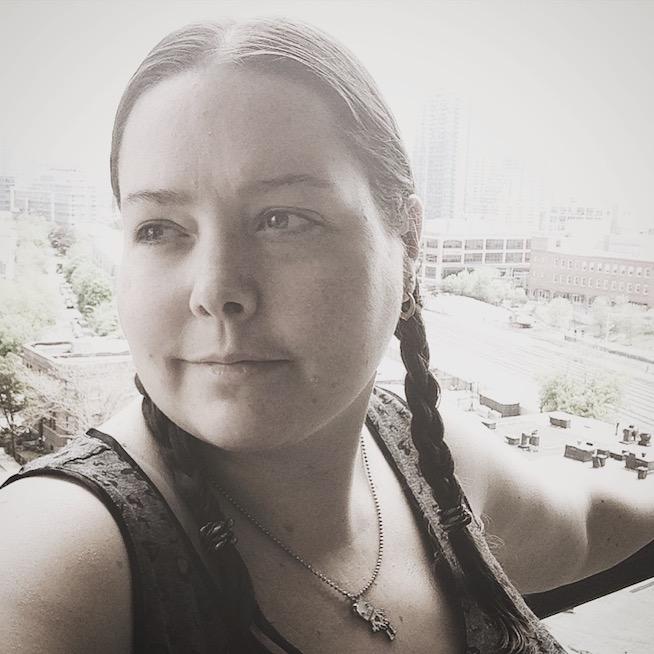
I wandered around the gallery, wanting to be alone. Much of the art had to do with the residential school genocide. I found myself getting angrier and more upset as I walked around. I clenched my fists. I held back tears. The friend I was with looked at me in concern, and all I could do was say, “This is so hard for me to be here.”
It was a choking feeling — one that I haven’t been able to forget to this day. I felt simultaneously sad, displaced, and indescribably angry. It stayed with me for days afterwards. I still haven’t been able to fully define it to anyone. I just know I’ll never forget it.
Last year, I went to an exhibit of contemporary Native art. I was interested, not only because I am Native, but because I haven’t had any exposure to my culture until I started having biweekly chats with my grandfather, who is now 89 and trying to reconnect with the culture he lost years ago. I’m a Chippewa Native, but I prefer to use Anishinaabe. It means “the good people” in Ojibwe, and it’s a more inclusive term for the group of nations to which I belong.
I wandered around the gallery, wanting to be alone. Much of the art had to do with the residential school genocide. I found myself getting angrier and more upset as I walked around. I clenched my fists. I held back tears. The friend I was with looked at me in concern, and all I could do was say, “This is so hard for me to be here.”
Having had time to think about it, what I believe I experienced was referred trauma. A study was recently done that found that mice who experienced trauma in their lives had their DNA permanently changed. When they had children, this changed DNA was passed down, recreating some of the effects of trauma, like anxiety and depression. Some Natives I’ve spoken to talk about experiencing this same anger and sadness when confronted with aspects of our history, even if they weren’t brought up on the reserve, which I wasn’t.
As a people, we are traumatized. As a people, we experience the effects of colonialism daily. It isn’t easy to let go of. It echoes in our blood and it affects some of us every day, from the deplorable conditions of reservations in Northern Ontario and Manitoba, to the fact that over 45 Indigenous languages are now in danger of extinction.
It’s not well-known, even in Canada, but during the years from 1840 to the late 1950s, over 150,000 Native children were taken from their families and imprisoned in residential schools run by different religious groups. Here, they were stripped of their Native identity, forbidden to speak their mother tongues, and abused, both sexually and physically. Many children died. In fact, the chance that a child would die in a residential school is believed to be 1 in 25 — worse than the odds of dying as a soldier in World War II.
Of all the atrocities committed against Native people in the years that we have lived the effects of colonialism, this is perhaps the biggest. In the past, our government has shrugged off the genocide, giving half-hearted apologies and staying oddly silent when organizations like the Truth and Reconciliation Committee meet. The latest report, over 362 pages, explains clearly what needs to be done to meet Natives halfway and to help them heal. Yet our women, who go missing and are found murdered at an alarming rate, are considered low priority in the government’s eyes. The government still decides what an “Indian” actually is, using the outdated and incredibly problematic Indian Act.
The residential school system was a system built to destroy North American Indigenous people. While my grandfather did not attend a residential school, partly because his mother moved him off the reserve at a young age, he describes being taught by white teachers in the school he attended with other Native children. They would speak in Ojibwe, teasing the teachers for not being able to understand. The teachers, in his words, "knew how to stop that. They knew how to beat the Indian right out of us.” As a result, he does not speak a word of Ojibwe, his first language, to this day.
Due to the loss of history in my family, I don’t know if other family members of mine attended the schools. I suspect some of them probably did. It’s not something that was ever talked about.
I’ve had many conversations with non-Natives about the residential schools and other issues surrounding Indigenous communities. What I get from this population is that they don’t realize how much the constant apathy from the government and the scornful misunderstanding from non-Natives really affects us. We have explanations and opinions demanded from us. We are constantly fighting for our own identities. Some of us are forced to relive traumatic events and memories.
We are told to get over it because it happened in the past. After all, the settlers “won.” It’s time for us to move on.
The thing is, you conquered Indigenous populations through dirty tricks like diseased blankets, alcohol, and massacre, and the effects of that are still prevalent today. We don’t owe you an explanation as to why we’re angry. We don’t owe you an opinion on the residential schools, or to prove to you our exact blood quantum so that you can determine, for us, if we are “really” Native or not. We don’t need to explain why some of us blockade roads to preserve what little land we have left, or why we protest at the upheld legalized racism of the Indian Act and the government’s silence on issues that continue to affect us.
The last residential school was closed in 1996. It stood generations as a testament to what happened, yet few non-Natives really realize what went on.
We are struggling, as a people, to survive after generations of cultural genocide. We are struggling to preserve what little culture you have left to us after years of trying to stamp it out.
We are suffering from years of trauma that non-Natives have inflicted on us. What we want is understanding and research, not scorn and demands.



